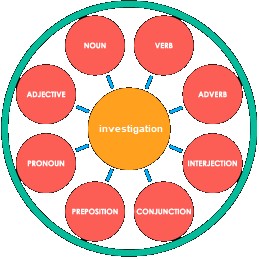Tip 4 for language learners and (yet) another BUT … (text)

While in Tip 1 I spoke of daily practice, in Tip 2 I revealed how connections between languages can really increase language knowledge. Tip 3 delved into reading as a way to increase vocabulary. As my learning seemed to be slowing down, I took to reading. But not passive reading.
It was a highly active approach to reading with the intention of increasing my vocabulary. Now, here, I do actually have a ‘secret approach’ I would like to share with you, dear reader. I read short stories. This was my modus operandi: read the short story and give my self a grade for understanding, something like 60%. Then, I would highlight the words/phrases that were not 100% clear. I would make a list and discover their meaning. Sometimes I used a dictionary; other times I just asked a friend. From there (get ready for it), I started to explore word categories based on words I learned in the text. I know it doesn’t sound like a secret, and it most certainly does not sound sexy (more nerdy, in fact). But my vocabulary increased exponentially. Just as an example, let’s say I found the verb ‘agradecer’ (to thank) in the text. I would put it into the table below and start investigating:
\ VERB NOUN ADJECTIVE ADVERB
agradecer agrado / agradecimento agradecido agradecidamente
By exploring the verb, I was able to discover all these other words: the nouns (2 in this case), the adjective and the adverb. So, every time I included a word, I would amplify my vocabulary by a further three or four words. I carried around a small pocket-sized book to keep notes in and refer to while I was on the bus or train. These tables were a great way to stimulate vocabulary growth. I would often hear a word on the bus (eavesdropping, I was) and try to put it into the table. A bus ride would often result in three or four new words, plus another nine or ten from the different categories I managed to work out.
Tip number 4: actively investigating variations of words you learn helps you expand your vocabulary knowledge quickly, BUT it is time-consuming and a bit nerdy.
If you are still reading this series of tips, you probably are into language learning or teaching. I hope this is helping in some way. I have two more tips (Tip 5 and Tip 6). Hang in there.